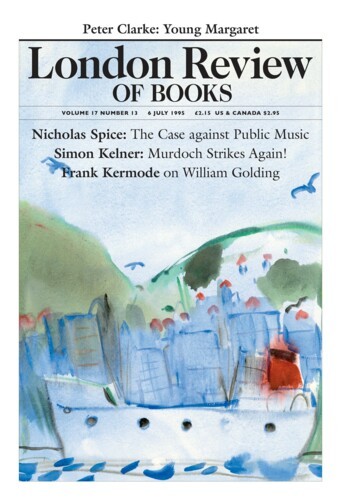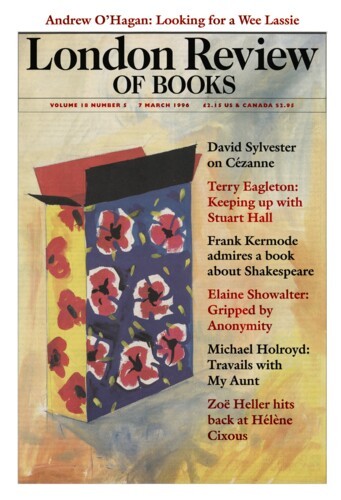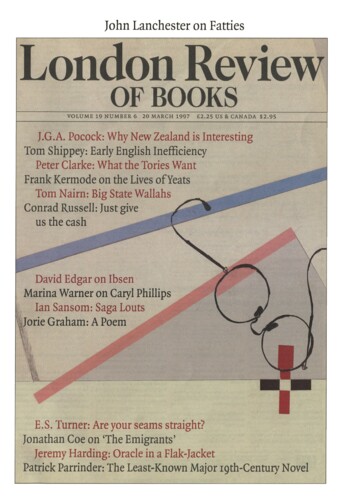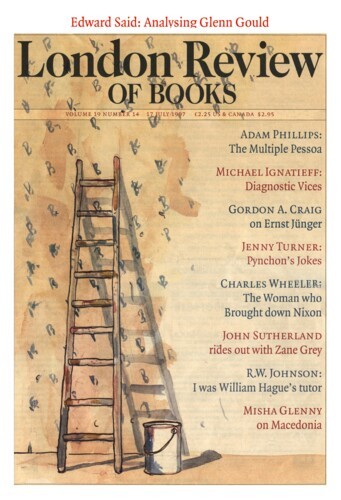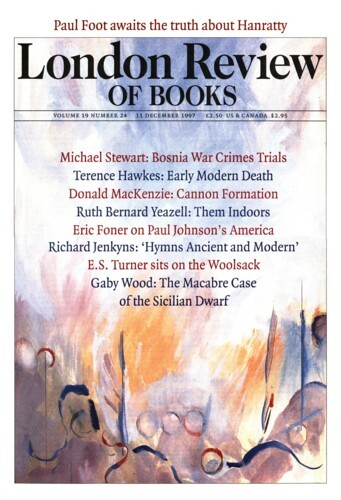Wayne’s World
Ian Sansom, 6 July 1995
Reading through Carol Ann Duffy’s unremarkable early pamphlet publications, one despairs of finding any sign of promise, any sign that this romantic and dreamy adolescent (‘Cast off your thighs/and irrigate the desert of my body’s europe’) would one day be hailed as our best British poet, the voice of a generation. Then one comes across the poem ‘Army’, published by the preternaturally far-sighted Howard Sergeant in the pamphlet Fleshweathercocks in 1973, when Duffy was just 18 years old. It begins:
